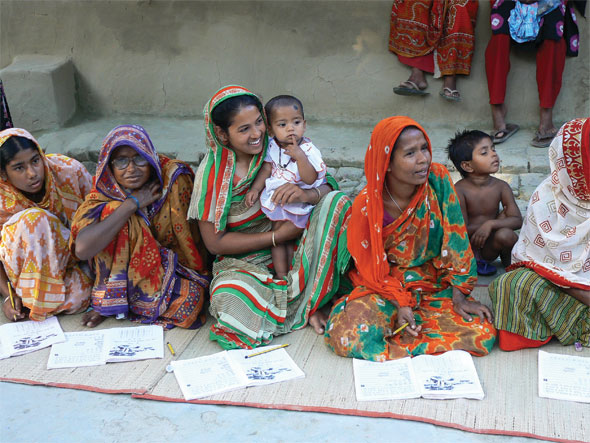 Although the geographical size of Bangladesh is only twice that of New Brunswick, the country has a population of 154 million people. Its capital city, Dhaka, is home to an estimated 12.3 million people, with over 3,000 overcrowded slums and rampant poverty. The average income is less than $2 per day. Located in South Asia between Bengal and Burma, Bangladesh was part of British India until 1947, when it became known as East Pakistan. Then, in 1971, it separated from Pakistan to become Bangladesh. This photo essay depicts the amazing work The Salvation Army is doing to bring hope to the people of Bangladesh.
Although the geographical size of Bangladesh is only twice that of New Brunswick, the country has a population of 154 million people. Its capital city, Dhaka, is home to an estimated 12.3 million people, with over 3,000 overcrowded slums and rampant poverty. The average income is less than $2 per day. Located in South Asia between Bengal and Burma, Bangladesh was part of British India until 1947, when it became known as East Pakistan. Then, in 1971, it separated from Pakistan to become Bangladesh. This photo essay depicts the amazing work The Salvation Army is doing to bring hope to the people of Bangladesh.
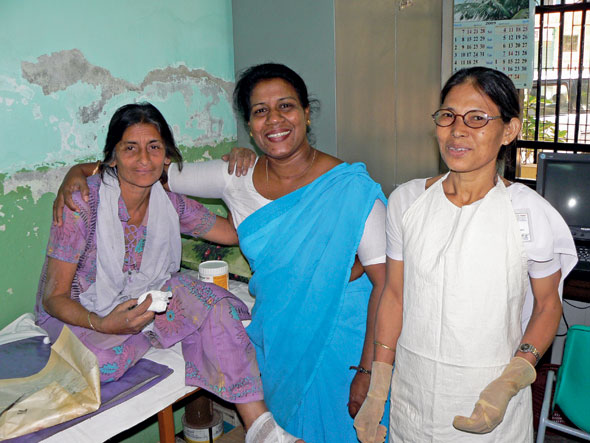 Leprosy treatment at the Mirpur Urban Health and Development Centre
Leprosy treatment at the Mirpur Urban Health and Development Centre
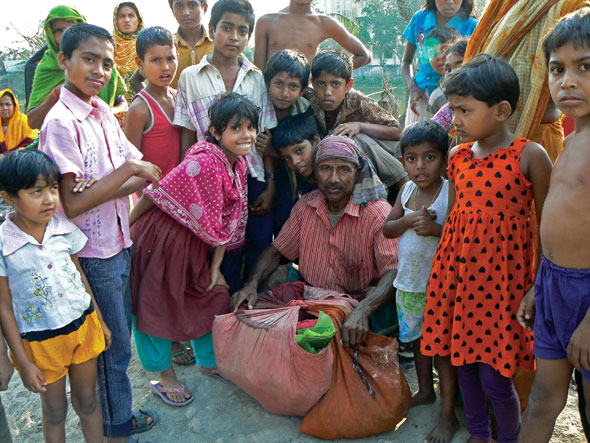 A merchant and children at a train station
A merchant and children at a train station
Literacy and Fair Wages
The literacy rate for men is 54 percent and drops to 32 percent for women. The Salvation Army offers several literacy programs. Whether for women in brothels or poor women from villages, the programs aim to first educate and then build on basic literacy. Participants are taught practical vocational skills, paid a fair wage for the products they make or are provided with an opportunity to join micro-credit loan programs.
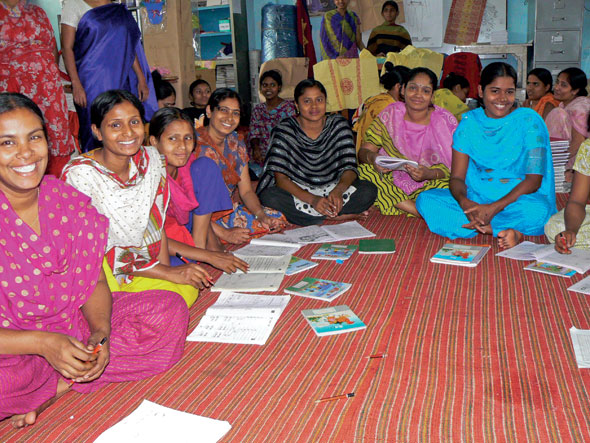 Literacy and vocational training in Old Dhaka
Literacy and vocational training in Old Dhaka
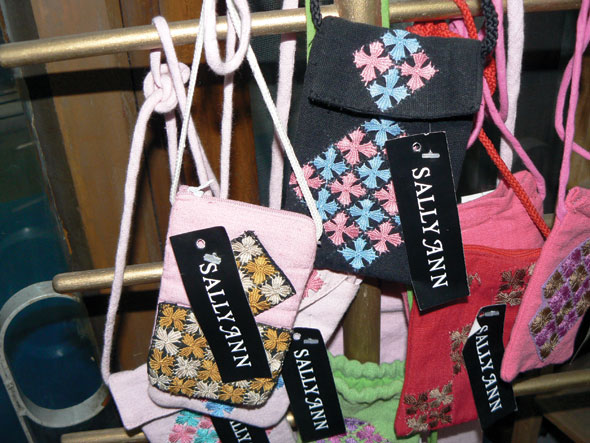 Sally Ann Fair Trade wares in Dhaka
Sally Ann Fair Trade wares in Dhaka
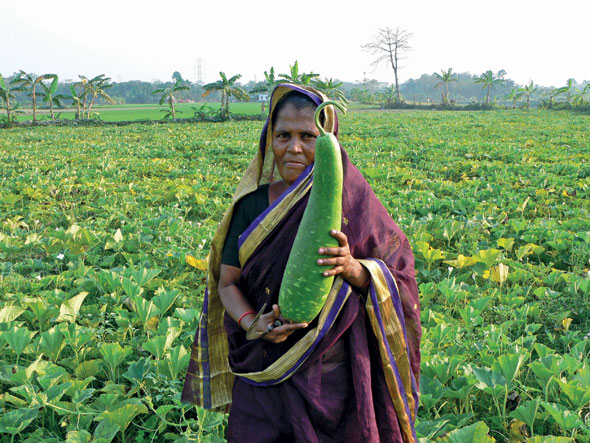 A woman in Jessore holds a pumpkin grown through a
A woman in Jessore holds a pumpkin grown through a
micro-credit loan
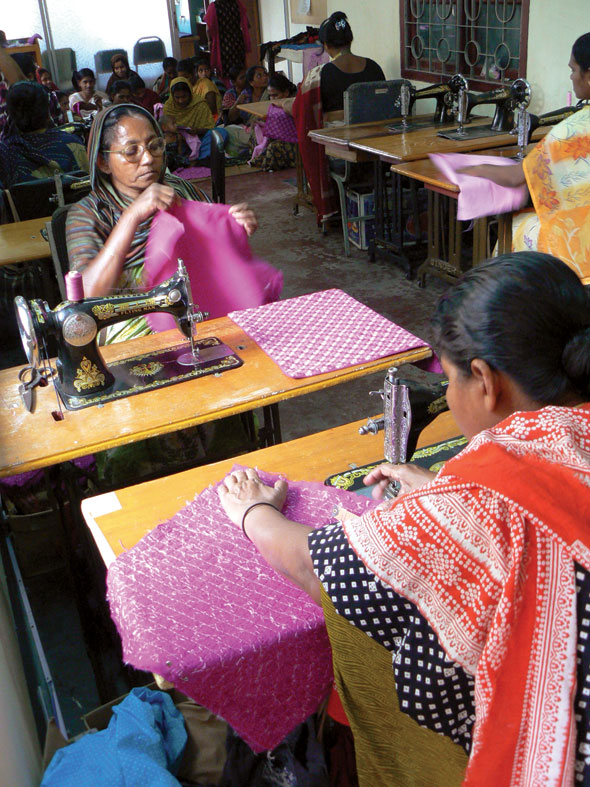 A tailoring class in Old Dhaka
A tailoring class in Old Dhaka
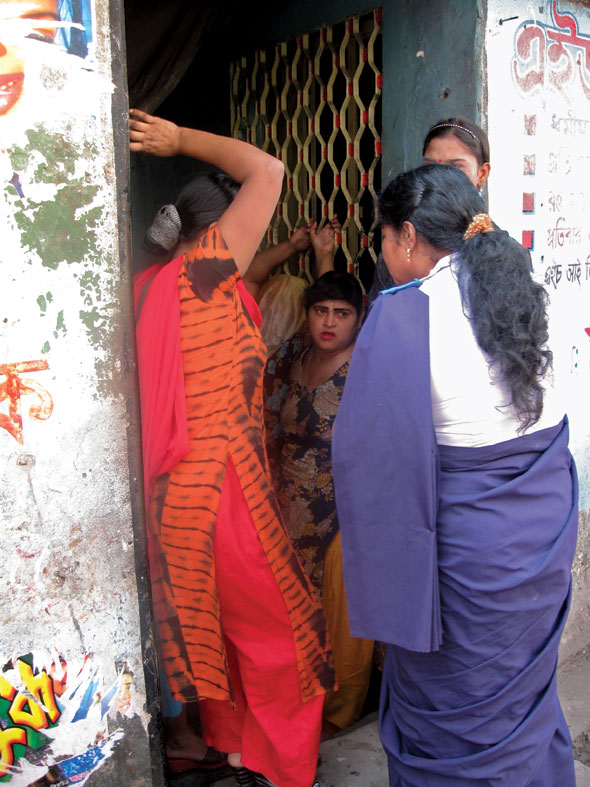 A Salvationist ministers outside a brothel in Jessore
A Salvationist ministers outside a brothel in Jessore
Safe Water Projects
It's estimated that half the population can't access clean water and 60 percent lack proper sanitation. A major problem for many Bengalis is water contaminated with arsenic. The Salvation Army runs a number of water and sanitation projects that include working with local communities to build water filtration systems. In addition, the Army has built latrines and washroom facilities to help prevent illness and the spread of disease.
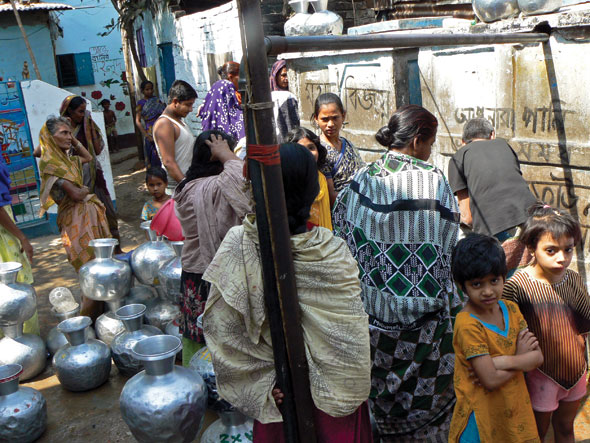 A water collection point for 17,000 people living in slums in Mirmur
A water collection point for 17,000 people living in slums in Mirmur
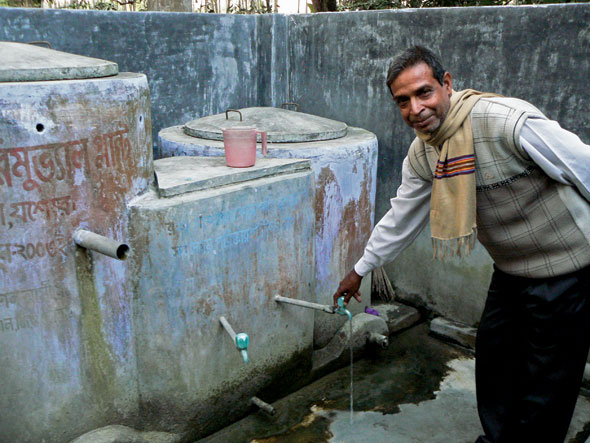 Arsenic and iron removal in Kholadanga
Arsenic and iron removal in Kholadanga
Education
The Salvation Army is actively involved with education, supporting several schools with specific attention to children with special needs. An integrated school for the visually impaired as well as a school for the deaf ensures that these children have the same opportunity to achieve as others in the community. The Salvation Army also operates a home for orphaned girls.
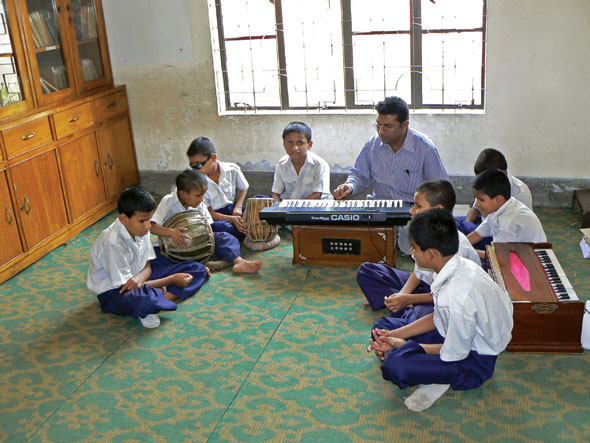 A music class for the visually impaired in Savar
A music class for the visually impaired in Savar
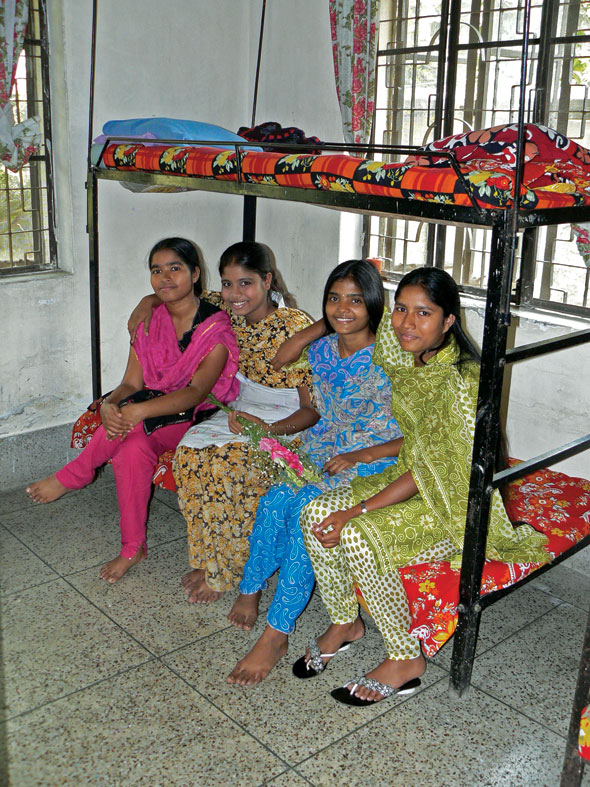 Integrated Child Care Centre in Savar
Integrated Child Care Centre in Savar
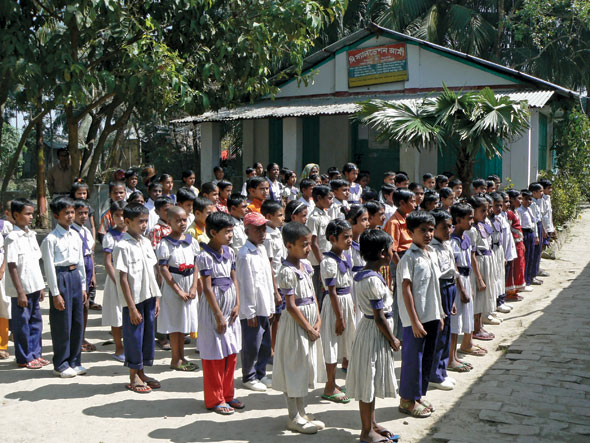 Integrated Child Care Centre in Savar
Integrated Child Care Centre in Savar
Health
The Canada and Bermuda Territory has maintained an active interest in Bangladesh since the country separated from Pakistan. As access to adequate health care is scarce, The Salvation Army operates a number of health clinics, including those that specialize in the testing and treatment of tuberculosis and leprosy, which continue to be problems in Bangladesh.
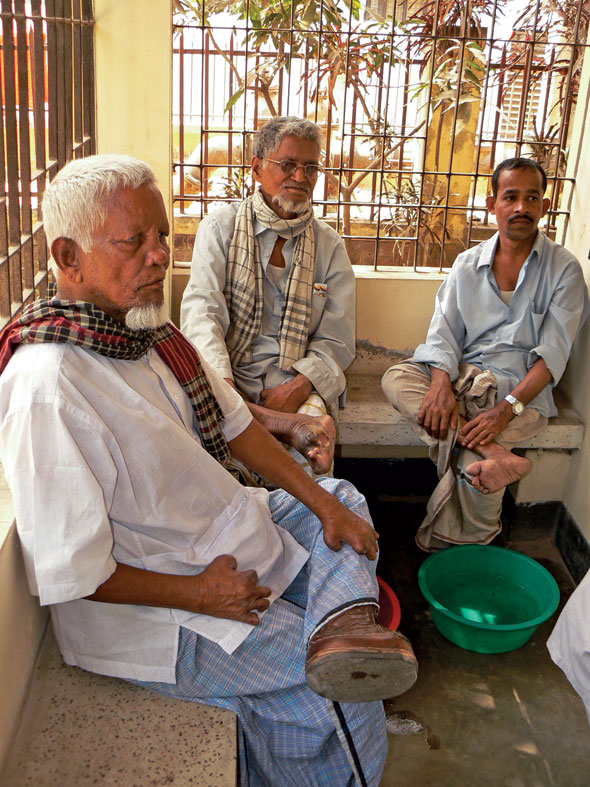 Men receive assistance at the leprosy clinic in Mirpur
Men receive assistance at the leprosy clinic in Mirpur
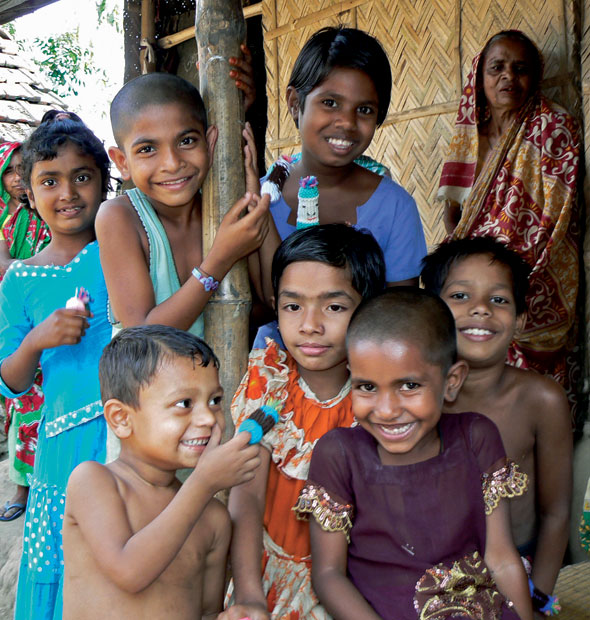 Children benefit from Army programs
Children benefit from Army programs
Sally Ann workshops, now known as The Salvation Army's Fair Trade movement, began under the direction of a Canadian Salvationist serving in Bangladesh. The Army has also partnered in a variety of projects, including the construction of a new playground at Savar's Integrated Child Care Centre. Captain Elizabeth Nelson, a Canadian officer, has been serving in Bangladesh as the projects officer.
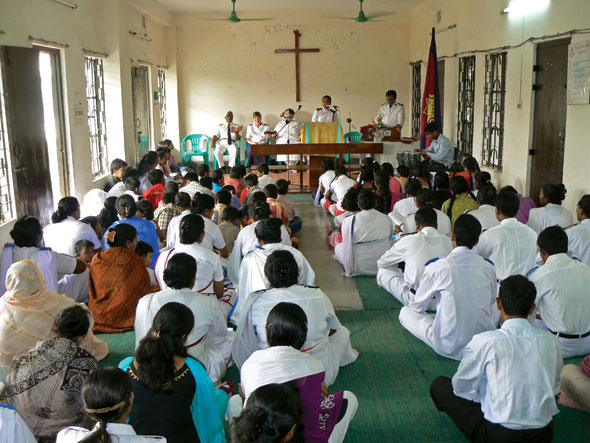 Worshipping at The Salvation Army Savar Corps
Worshipping at The Salvation Army Savar Corps
Take time to learn more about the great work being done in Bangladesh and in our partner territories. Visit Salvationist.ca/partnersinmission for more information or click here to access additional Partners in Mission resource materials.




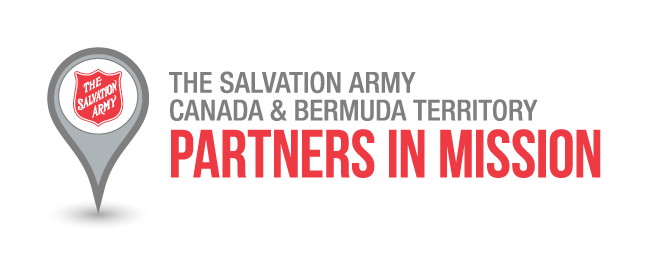
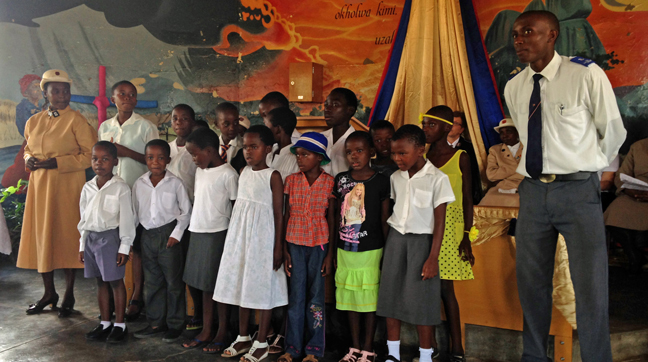
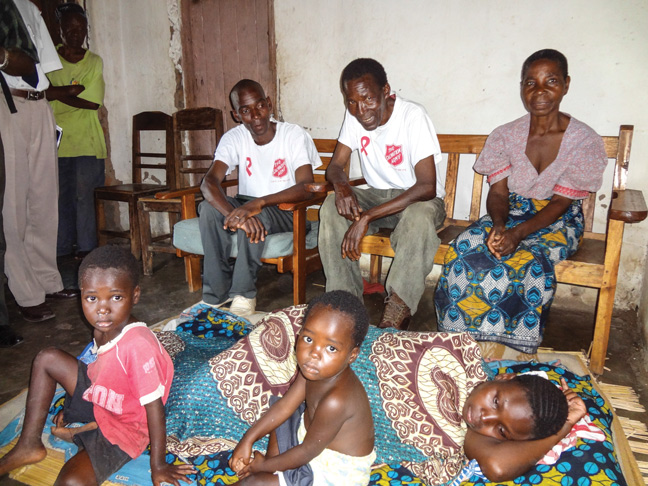


Comment
On Thursday, August 18, 2011, Luis Hembram said:
Leave a Comment